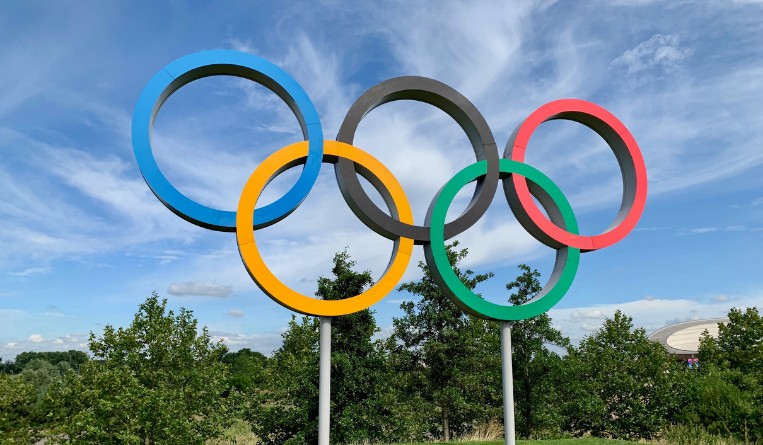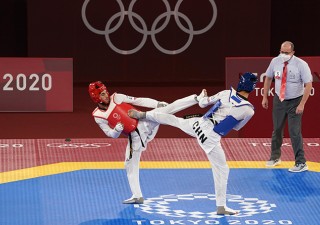Moment marketing and PV Sindhu’s Olympic moment
13 August 2021

Badminton player Pusarla Venkata Sindhu or PV Sindhu of India has been making sports headlines in her country, having won medals in major international tournaments including the World Championships and the Olympic Games.
In August 1 this year, Sindhu made sports news again for winning the bronze medal in women’s singles at the 2020 Tokyo Olympics. She also became India’s first female athlete to win two Olympic medals, having won silver in Rio de Janeiro. Her sporting achievement became a trending topic in India’s social media circle.
However, Sindhu is also in the news for another issue altogether: moment marketing.
According to Sudhansu Sahoo, legal associate at Khurana & Khurana in New Delhi, moment marketing may be defined as an act by companies or brands to engage in trendy, raging issues, putting their opinions on the matter in such a way as to attract audience in the digital space.
The badminton player is considering taking legal action and seeking Rs 5 crore in damages from each brand that engaged in moment marketing after her “Olympic moment.” These brands used her name and face without her consent and that of her management firm, Baseline Ventures, in their moment marketing activities.
Perfetti Van Melle, P&G, Pan Bahar, Apollo Hospitals, Aditya Birla, Vicks and Happydent posted congratulatory messages to her for her sports exploit in Tokyo. There is nothing wrong with this per se, except that these companies placed their brand names and logos in their congratulatory messages which of course included Sindhu’s name and image.

“Many Indian brands use this marketing tactic to reap benefits for themselves by staying relevant and joining the conversation on trending topics,” said Sahoo. “This helps them build a relationship with their target audience and attract more consumers.”
“Is this per se illegal? Nope. Were the brands unethical in their portrayal? Absolutely!” said Sahoo.
It is also a violation of Rule 40 of the Olympic Charter.
“As per this rule, no brand is allowed to post about the athletes during the period of the Games. Only the International Olympic Committee and the National Olympics Committee – in this case, the Indian Olympic Association - partners and sponsors of the Olympic Games are allowed to post about the players and their achievements. Even the brands that endorse or sponsor the player are not allowed to post anything on the athletes. The only recourse here is if the National Olympic Committee has agreed for relaxation of Rule 40 for its athletes,” said Sahoo.
For Baseline Ventures managing director Tuhin Mishra, it is also an infringement of the badminton player’s intellectual property rights.
Is it?
Unfortunately, sports personalities do not have protection under Indian IP laws.
“There is no trademark or any sort of IP protection for the players, as Indian athletes do not register their name or copyright their unique elements as practiced in most countries in the west,” Sahoo explained. “Hence, it cannot be said that there has been an infringement of the athlete’s IP rights in the instant matter.”
However, these acts of moment marketing do violate the provisions of the Advertising Standards Council of India Code (ASCI) which ensures that brands do not infringe upon the privacy of sports personalities and celebrities. Recently, ASCI secretary general Manisha Kapoor condemned the activities which these brands engaged in following Sindhu’s bronze medal finish in the Olympics. She said it can easily mislead consumers into believing that the athlete represents the said brands.
“As of now, the best thing for PV Sindhu is to send a strong legal notice against the brands, which is important in the context so that all brands in general are made aware that this is a gross violation of the athlete’s rights and should be avoided at all cost. There are many unique ways of advertising in today’s digital era, and most companies including Amul have used such ways to advertise and get into the trend without flouting the rights of any person,” said Sahoo.
Some of the brands have taken down their congratulatory posts and Baseline Ventures is now talking with the rest of the brands.
How will this case – an interplay of moment marketing, IP and sports - help shape sports and IP laws in India?
“In the absence of any regulatory framework for sports law, the foremost requirement is a legislation taking into consideration all the different aspects of sports into place. Most of the sports legislations are archaic and there is no single or concrete regulatory framework which governs all aspects of sports in India, which is a dire requirement considering the growth of sports in the country and the issues with it,” said Sahoo.
“Issues like the present one are challenging new areas to tread on in the digital age, and reforms to these rules, so that guidelines and regulations have a reasonable balance, will have to emerge and it needs to start from somewhere,” he said, “maybe this time!”
Espie Angelica A. de Leon






